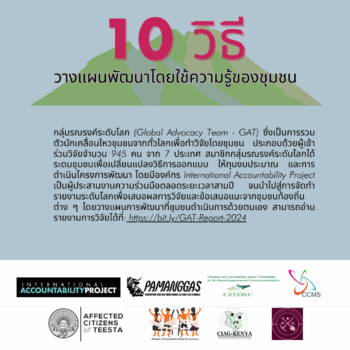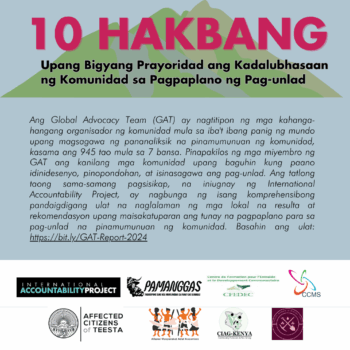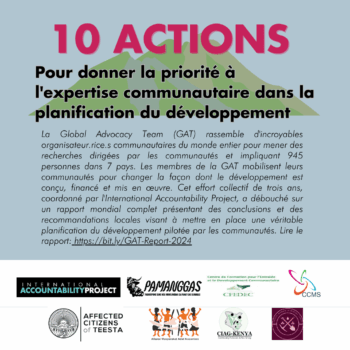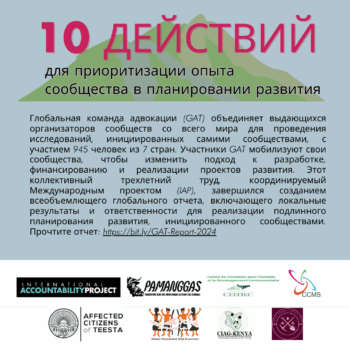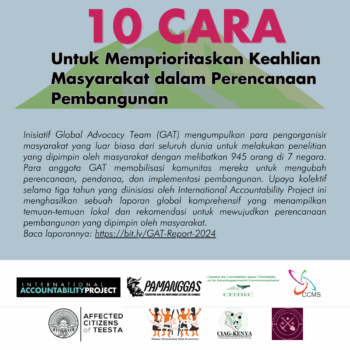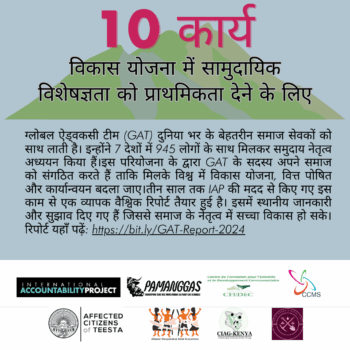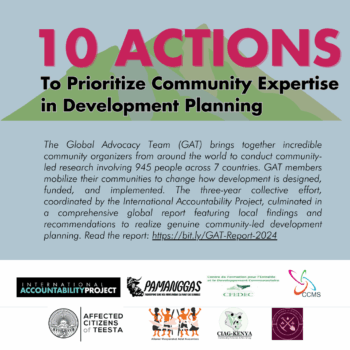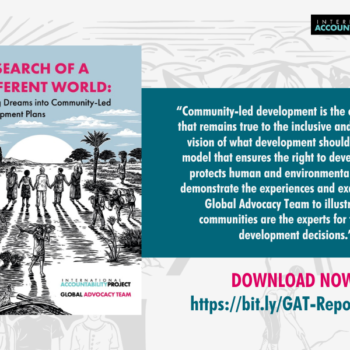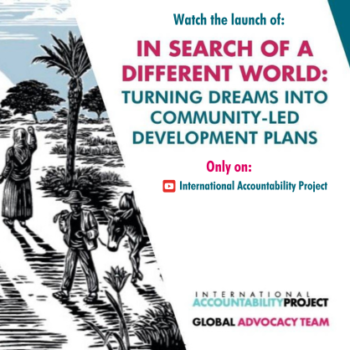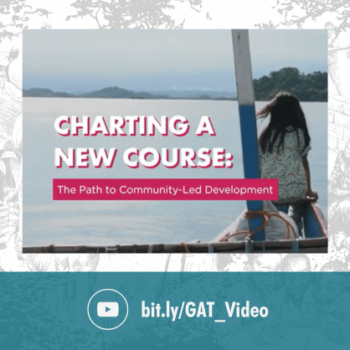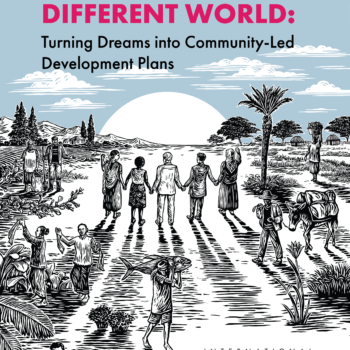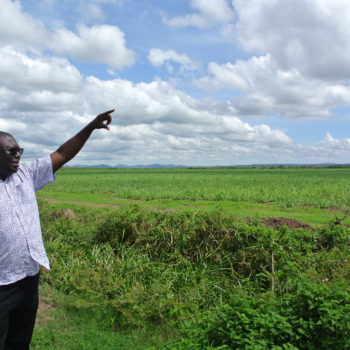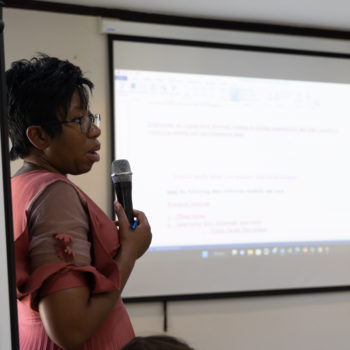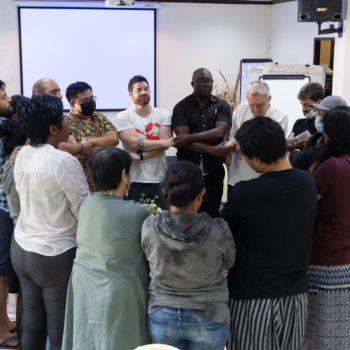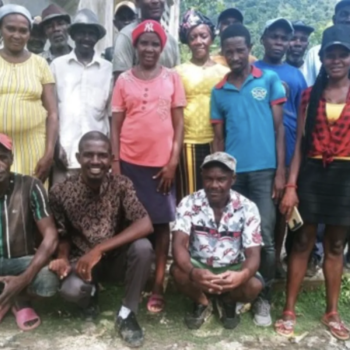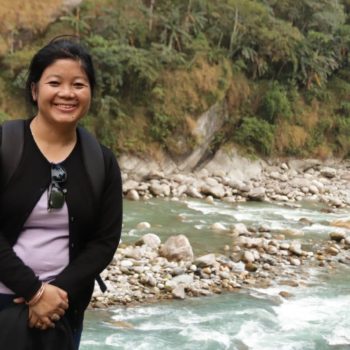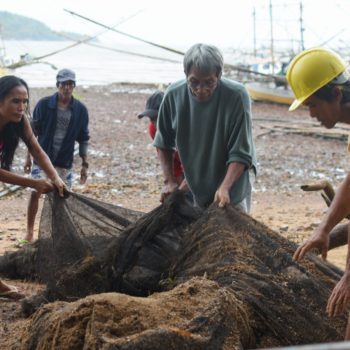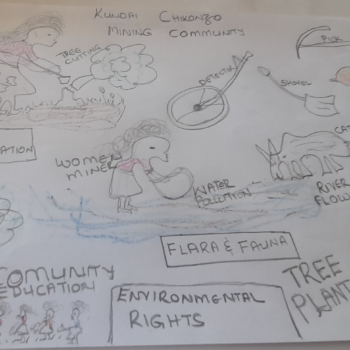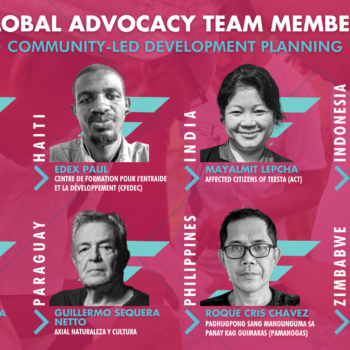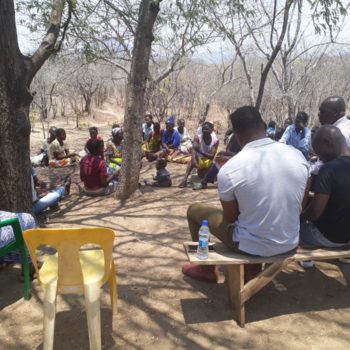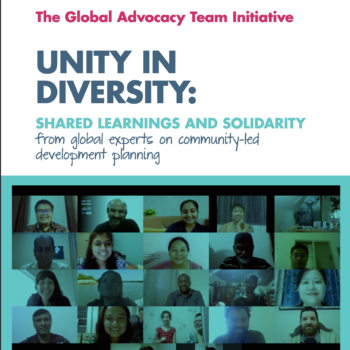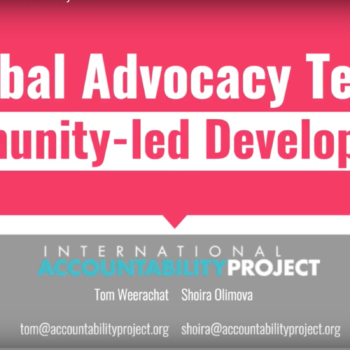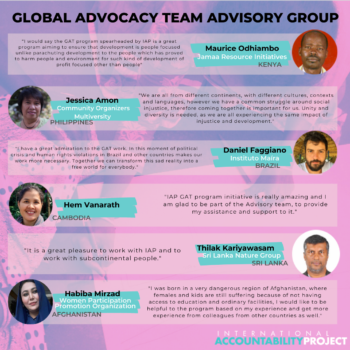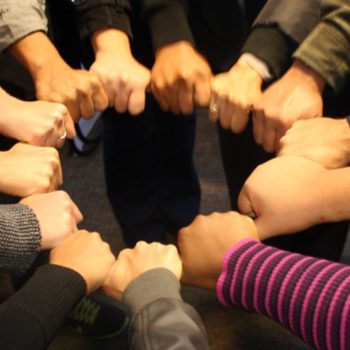Ending poverty should come from communities.
They should not impose projects but hear what communities think would end their poverty.
– community member interviewed by the Global Advocacy Team
Today’s prevailing development model is broken – or it has never really worked.
As IAP and our partners have witnessed again and again, those designing, implementing and leading development still fail to meaningfully involve the people whose lives, homes, livelihoods and environment are most impacted. Development projects and programs repeatedly cause harm and often leave communities worse off than before.
To achieve the promises of real development, communities must be recognized as experts and leaders. IAP believes communities have the knowledge and expertise to determine their own development priorities. To that effect, IAP convened the first Global Advocacy Team to document community-level expertise and challenge the existing development model with community-led research and recommendations.
Based on the work of the Global Advocacy Team and others, IAP created three guides on conducting community-led research in the context of development and produced a collectively written report, Back to Development: A Call for What Development Could Be, and 8 global recommendations to achieving community-led development. The first Global Advocacy Team ended their research by asking the question, “What if development were designed and lived by the same people?”
Towards Community-Led Development
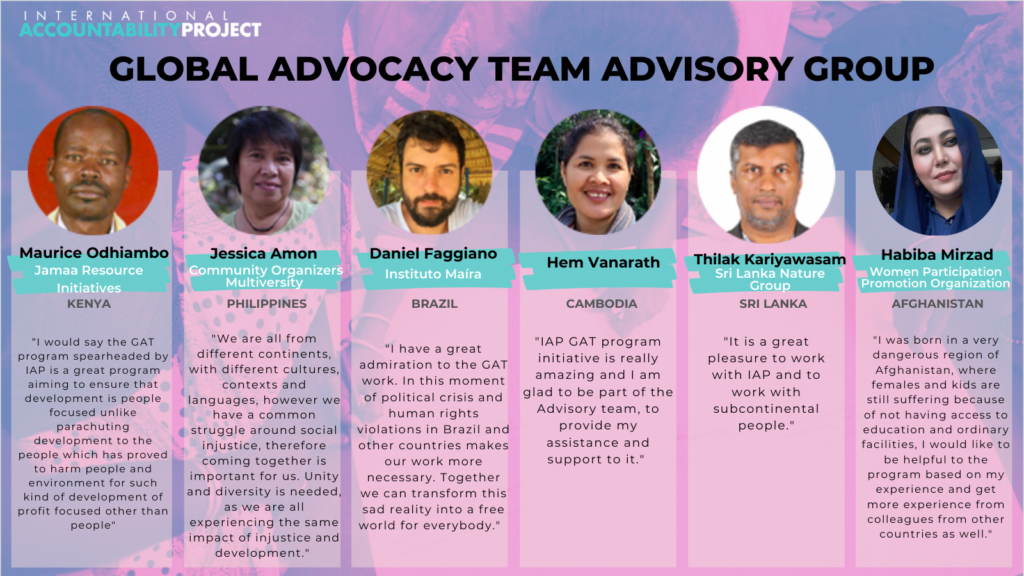
A community-led development plan determines or strengthens a community’s own development priorities and improves their participation in the decisions-making which affects their lives and livelihood.
IAP’s Strategic Plan 2021-2025 resulted from surveys and consultations with partners and allies to evaluate its existing programmatic work and determine the organization’s next priorities. As a result of these conversations, the International Accountability Project will assemble a global collective of 8 community organizers to receive training and support to produce their own community-led development plans. As representatives of a community, the Global Advocacy Team members will have a demonstrated commitment to organize and create community-led development plans and an openness to learn from each other’s experience and expertise. A Global Advocacy Team member may be already resisting a proposed or existing project or have the desire to establish their own development priorities independently.
After community-led development plans are created, the Global Advocacy Team will publish a self-written report detailing their creation process and provide recommendations on how the plans can lead decision-making. Based on the research and recommendations of the Global Advocacy Team and other experts, IAP and partners will produce accessible training materials, Community Action Guides, to assist community organizers around the world who wish to start or improve their own community-led development planning. IAP will support the publication and distribution of the Global Advocacy Team report, the training materials and case studies that will emerge from this initiative.
The Global Advocacy Team will demonstrate what the actual fulfillment of the human right to development could be. Their work will be grounded in the interdependent civil, political, economic, social and cultural rights prerequisite to the fulfillment of the right to development, including but not limited to the right to access information, freedom of assembly and association, a healthy environment, education and cultural respect.
Support the Global Advocacy Team
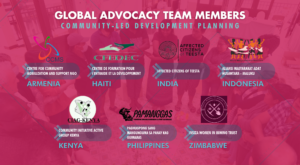
IAP’s second cohort of the Global Advocacy Team initiative brings together incredible community organizers from around the world to conduct community-led research and mobilize their communities to change how development is designed, funded, and implemented. Read the three year plan.
IAP typically collaborates with people and organizations who are deeply connected with and dependent upon land and natural resources for the life, livelihood, belief system, culture, and history. In order to take this initiative forward, we ask funders, partners, and allies who work or are interested in working with community-led development to contact us.
Catch up on previous Global Advocacy Team news:
- Article: Meet the 7 amazing new members of the Global Advocacy Team!
- Video: Watch a video introduction to the Global Advocacy Team Initiative
- Article: A global collective can advance community-led development
- Article: Join us to strengthen community-led development planning around the world
- Report: Read how partners co-created this work in the Global and Regional Expert Meeting Report (PDF, translatable html)
- Report: Read how community-led research in 7 countries transforms hopes into development plans addressing local challenges and dreams in “In Search of a Different World: Turning Dreams into Community-Led Development Plans.”
- Video: Watch “Charting a New Course: The Path to Community-Led Development.”
- Infographic: Download our infographic to learn 10 actions to prioritize community expertise in development planning.
- Community-led Development Plans: Developed by local communities across 7 countries, these community-led development plans showcase locally rooted, globally connected solutions where diverse communities take the lead in their development journey and drive meaningful change.
Your experiences, ideas, and proposals are necessary for us to move towards true development. Consider getting involved by emailing us at gat (@) accountabilityproject.org. Follow IAP on social media – Facebook: bit.ly/IAP4FB and Twitter: @4accountability.


